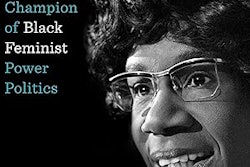Historically Black Colleges and Universities could be considered physical manifestations of both the American dream and the American dilemma. They were created out of necessity to educate pillars of African American communities who could then exercise proscribed leadership within a society that discriminated against and penalized the members of their race in many different ways. It is a matter of record that these institutions have prepared generations of students to actualize their capabilities, so they could contribute to the further development and enhancement of America and the world. From their inauspicious beginnings, HBCUs have successfully instilled into their students, faculty, and administrators the empowering message that they must “find a way or make one.”
 Dr. William B. Harvey
Dr. William B. Harvey
A number of predictions have been put forth that, because of the recent U.S. Supreme Court decision that outlawed affirmative action, applications for admission to HBCUs are likely to increase at a substantial rate. Whether the predictions come true or not, these institutions need and deserve a path to sustainability. To that end, I want to offer a suggestion. Remember that despite having relatively meager financial resources, African Americans have always managed to contribute generously to causes and institutions that support our communities. The most obvious expression of sharing our assets has taken place through the process of ‘tithing’ – making regular contributions over sustained periods of time to our selected houses of worship, and the certainty of this steady revenue stream has been the lifeblood of many churches throughout the nation.
Most African Americans don’t give a second thought to making these regular donations to our selected religious institution because we’ve been doing it all our lives, starting when we were children and continuing into adulthood. Because we grew up in these settings, we tend to see them a little differently from the institutions where we spend four years (or more) to earn our postsecondary degrees. It’s almost a natural thing for us to give to our church, but that’s not always the case for our college or university. The time has come for all graduates of HBCUs to demonstrate the same sense of commitment that compels you to support your church, by also providing financial assistance to your alma mater. The institutions need you to engage in ‘priding’ — demonstrating your pride in having earned your degree by making regular, sustained financial contributions, especially in this time of challenge and uncertainty.
Priding a contribution of $25 monthly will amount to $300 a year in new revenue that your alma mater will receive. By reaching out to urge former classmates and other interested alums to match your ‘priding’ contribution with donations of their own, the bottom line can swell pretty quickly. For example, it would only take 100 of those $25 monthly donors to bring an additional $30,000 a year into the institutional accounts; funds that could be used for student scholarships or to support deserving faculty members. At the $50 per month contribution level, one-hundred alums will put $60,000 into the university financial accounts each year, and so on. The total contributions from 500 alums at this rate would be an astounding $300,000 a year, helping to provide stability and flexibility to the institution.
For many successful HBCU alumni, the foundation for their career success has been their matriculation at their alma maters, and their accomplishments have extended beyond their own communities, across the nation and the world. These institutions have proven themselves to be adept at facing and overcoming challenges time and time again, literally and figuratively doing more with less. As the nation continues its struggle to overcome the impacts of racism and discrimination, the sustainability of these institutions can be directly linked to America’s economic, social, and political well-being in the 21st century. They have proven themselves to be deserving of public encouragement and support.
Anyone who wants to help this country realize its aspirations and dreams through the ongoing development of visionary, concerned and committed citizens and leaders can help ensure the sustainability of HBCUs by providing them with financial support on a regular and consistent basis. In the past few months, the press has heralded landmark contributions from generous benefactors such as MacKenzie Scott, but even if your bank account is not quite that large, all that’s needed to help these vital institutions is a checkbook or a credit card, some good will, and trust in the future.
Dr. William B. Harvey serves as distinguished scholar at the American Association for Access, Equity and Diversity in Washington, D.C.



















